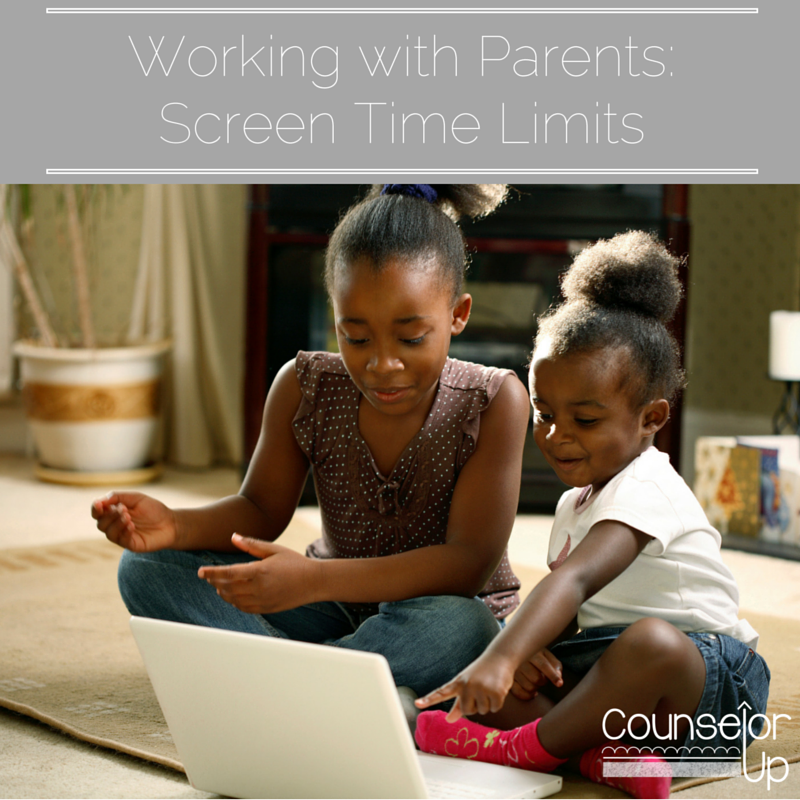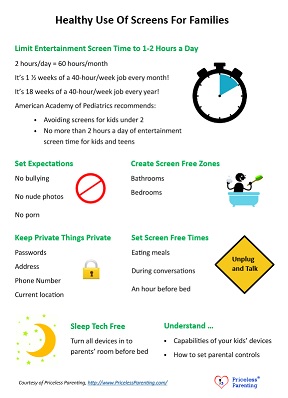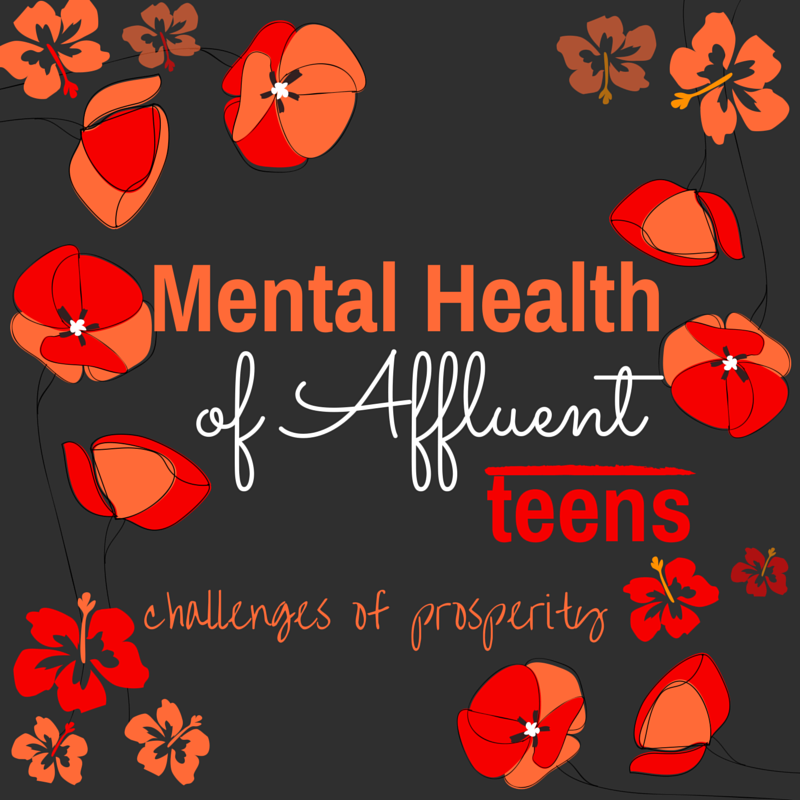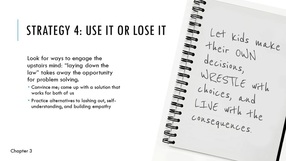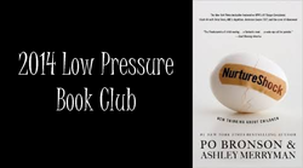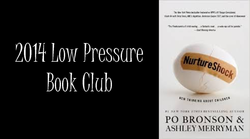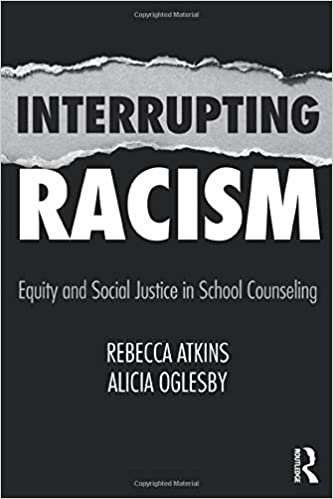Parents want to be seen as competent. When you approach them to discuss setting healthy limits on their kids’ media usage, you can easily trigger feelings of inadequacy and being judged. Before parents can hear your message, they need to feel that you are on their side - trying to help them, not make them feel bad about their parenting.
Leading with Empathy
- My kids love being on screens. If I try to take the screens away they get upset.
- My kids learn a lot using digital media.
- They fight less with each other and behave better when they have screens.
- My kids use digital devices at school so I know it’s good for them.
- I’m busy and overwhelmed a lot of the time. When my kids are on their screens, I can get some things done.
- “Your son really loves playing Minecraft. I bet it’s hard when he needs to turn it off.”
- “Your daughter is so talented at using the iPhone! What is her favorite thing to do on it?”
- “Parenting is a non-stop job! What do you usually do when your kids are busy on their iPads?
Ideally the parent will respond with more information about how their kids use their digital devices. This will allow you to ask questions and learn more about this parent’s thoughts on their kids’ media usage. After you establish a rapport you’ll be in a better position to offer guidance.
How Much Screen Time is Reasonable?
For older children, the AAP suggests limiting entertainment screen time -- including TV, video games and computer use -- to one to two hours a day. Most kids far exceed these recommendations. According to the AAP, “children are spending an average of seven hours a day on entertainment media, including televisions, computers, phones and other electronic devices”.
Providing Guidelines on Kids' Media Usage
- Spending less and less time with family and friends
- Difficulty focusing on the present moment due to craving video games or cellphones
- Withdrawing from sports, hobbies and social interactions
- Losing sleep due to gaming, texting
- Acting irritable or discontent when not using digital items
- Declining grades in school, missing school
- Talking and thinking obsessively about the digital activity
- Denying or minimizing any negative consequences
- Developing health issues such as Carpel Tunnel Syndrome, eye strain, weight gain, backaches
Providing some written information is a wonderful way to reinforce what you’ve discussed. You are welcome to print out these flyers to give parents:
- Healthy Use of Screens For Families
- Warning Signs of Too Much Screen Time for Kids
- Too Much Screen Time Hurts Babies
These flyers plus additional information is available on Priceless Parenting’s page for “Parenting Digital Kids”.
Researchers have found that children whose parents make an effort to limit media use spend less time with media than their peers. Although children may resist efforts to reduce their screen time, the long term benefits are worth it!

